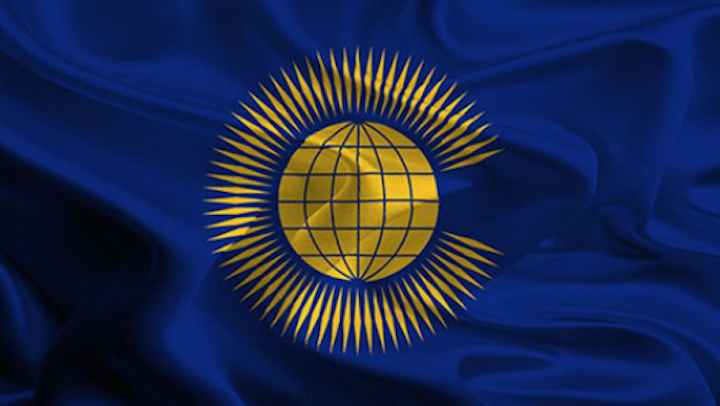The Maldives is not on the agenda of the Commonwealth Ministerial Action Group (CMAG) despite “efforts made by some of the most powerful countries in the Commonwealth to place the Maldives on the group’s agenda and harm the nation,” the foreign ministry has said.
Some Commonwealth members have been pushing for the Commonwealth’s human rights and democracy arm to assess alleged violations of the organisation’s principles by the Maldives following the imprisonment of opposition politicians, including former President Mohamed Nasheed.
“Minister of Foreign Affairs Ms Dunya Maumoon gave a briefing to the CMAG Ministers today about the political situation in the Maldives and reiterated that there is no serious or persistent violation of Commonwealth political values in the Maldives,” the foreign ministry said in a statement yesterday.
It added that Dunya also stressed “the progress that the government has achieved in defusing political tensions in the country” and assured the Maldives’ commitment to “constructively engage with the Commonwealth”.
Signs of an end to a six-month long political crisis are emerging. Nasheed was transferred to house arrest in late June after the opposition backed a constitutional amendment to allow President Abdulla Yameen to replace his deputy.
At a second meeting between representatives of the government and the main opposition Maldivian Democratic Party last night, home minister Umar Naseer said the government is open to exploring avenues to release jailed politicians and withdraw charges against opposition supporters.
FM Dunya briefs CMAG on developments in Maldives #happeningnowpic.twitter.com/lfd1e7y94L
— MFA-Maldives (@MDVForeign) July 5, 2015
Foreign minister Dunya said last week that the Maldives “will seriously consider its membership in the Commonwealth” if the country is placed on the CMAG agenda for a second time.
Meanwhile, former foreign minister Dr Ahmed Shaheed has said that the CMAG only granted the Maldives further time to “sort out [the] mess Maldives is in.”
CMAG meets in London on a Sunday 4Extraordinary Mtng on Maldives n decides 2give more time 4GOM 2 sort out d mess Maldives is in @DevirupaM
— ahmed shaheed (@ahmedshaheed) July 5, 2015
The UN special rapporteur on Iran also said that the group will convene again after the UN working group on arbitrary detention declares Nasheed’s imprisonment unlawful.
The opposition leader was found guilty of terrorism in March over the military’s detention of a judge during his tenure. The 19-day terrorism trial was criticised by foreign governments, the UN, and international human rights organisations over its apparent lack of due process.
The former president’s international legal team filed a petition at the UN working group in late April. The government has been asked to respond before the first week of July.
A big thank u2 CMAG4 emrgncy meetng 2day discuss Maldivs. Look 4ward2 nxt meetng aftr UNWGAD orders PN’s release in a few weeks @MDVForeign
— ahmed shaheed (@ahmedshaheed) July 5, 2015
In less than a week @MDVForeign must explain 2 UN Working Group on Arbitrary Detention y Maldives held a sham trial in PN’s case @ZaheenaR
— ahmed shaheed (@ahmedshaheed) July 5, 2015
In a conversation last week with Commonwealth’s secretary general Kamalesh Sharma, Dunya said there are no serious violations in the Maldives and criticised Sharma’s alleged failure to follow due process before considering action.
The MDP meanwhile called on the Maldivian government to “stop being so arrogant.”
“Having to leave the Commonwealth for not abiding by its principles only isolate the Maldives from the rest of the world. And it will not be very healthy for the Maldives, but detrimental,” said MP Imthiyaz Fahmy.
CMAG agenda
The Maldives was placed on the CMAG agenda from March 2012 – March 2013 after President Nasheed resigned in the wake of a violent police and military mutiny. He later alleged he had been ousted in a coup d’état.
But a Commonwealth-backed inquiry found the transfer of power to be constitutional.
The Maldives was previously placed on the CMAG’s agenda “on an unfair basis, based on false allegations, and the country’s economy and democratic governance suffered significantly as a result,” Dunya said.
She also said Sharma had not raised questions over violations in the Maldives, or extended assistance for redress as required by the Commonwealth’s rules.
In mid-June Canada called on CMAG to “urgently put the deteriorating situation in the Maldives on its formal agenda.”
Dunya urged Sharma to take note of the positive changes in the Maldives in the last few weeks. She also accused Canada of exerting undue influence in the Commonwealth as a donor country.
